Driverino features
- ATmega32U4 microcontroller;
- Micro USB interface;
- TI MCT8316Z motor driver;
- 41x26mm (size);
- RS232 interface;
- Standard R/C input compatibile.
The board can drive up to 24V-36V 8A rated sensored BLDC motors and provide 5V power supply (200mA max) mimicking R/C ESC BEC feature. Driverino supports a variety of different types of Hall's sensors (analog single ended, analog differtial, digital) and also different sensors supply rates (3.3V and 5V). To correctly fit for a specific sensor kind some soldering may be required: by default the board project is fitted for digital 5V sensors.
Once the correct bootloader has been burned-in the board will behave as an Arduino board (at least for programming/debugging task) and also spin a motor.
Driverino's firmware allow users to drive BLDC motors using a standard RS232 interface trough simple interactive commands. The firmware allow also:
- closed loop speed control (implementing a PID loop);
- motor/driver status monitoring;
- R/C ESC emulation.
The project library allow Arduino users to interact with BLDC motors without knowledge of MCT8316Z chip and SPI protocol.
TODO:
- Add features:
- vm measurement;
- current measurement (via INA250).
- Optimize PCB layout.
- Write Library.
- Write Firmware.
- Submit to Kitspace
- Submit to Made-With-KiCAD
P.S.
Driverino is an italian noun and sounds like /ˈdraɪvərnəʊ/ meaning little driver.
For those looking for a shield like BLDC driver there's also Driverino-Shiled project.
 Michele Santucci
Michele Santucci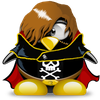
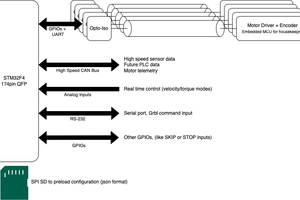
 plugg.ee Labs
plugg.ee Labs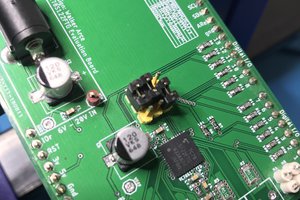
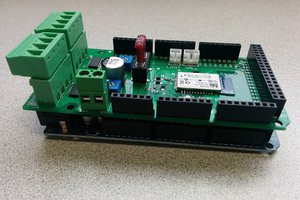
 steven.sagerian
steven.sagerian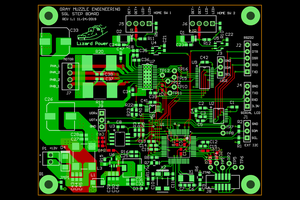
 Bharbour
Bharbour
Thnx! If you wish to contribute you're welcome (take a look to the Arduino-Shield spin-off)